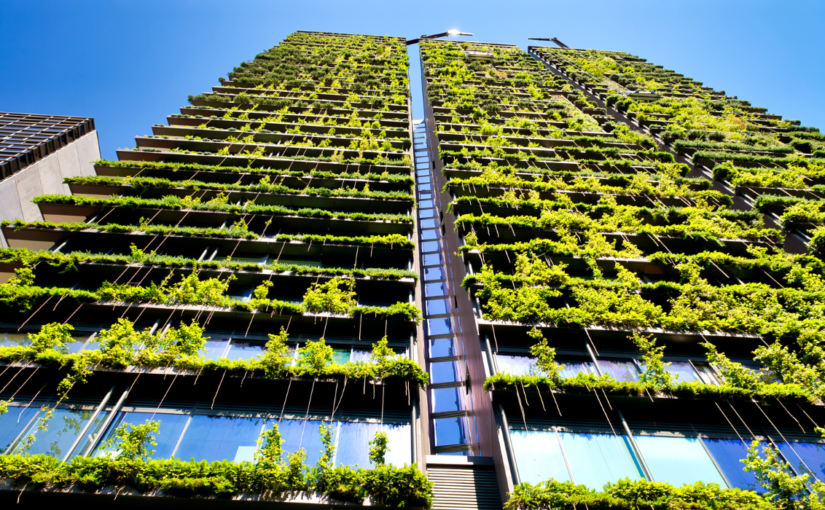back
Best Practices for Environmental Compliance in Commercial Real Estate
04-2023

The global economy greatly benefits from commercial real estate, which offers services to consumers and workplaces for workers. Yet, it also has a significant negative impact on the environment in terms of emissions and resource use. In order to reduce their environmental impact, commercial real estate enterprises must adhere to environmental compliance standards. The finest methods for environmental compliance in commercial real estate will be covered in this article.
- Conduct an Environmental Audit: Knowing your present environmental effect is crucial before introducing any compliance strategies. You can find opportunities for improvement and establish realistic environmental goals by conducting an environmental audit. It may involve a review of waste management, air and water quality, and energy and water use. You can create a plan to enhance your environmental performance after performing an audit.
- Implement Energy Efficiency Measures: One of the best methods to lessen your impact on the environment is to reduce your energy consumption. Installing energy-efficient lighting, appliances, and HVAC systems is a good place to start. You can lower your carbon footprint and save money on energy bills by upgrading to energy-efficient equipment. You might also think about generating electricity with alternative energy sources, including solar or wind energy.
- Improve Water Efficiency: Water should be conserved because it is a valuable resource. Water use in commercial real estate can be large, primarily for irrigation and landscaping. Consider installing low-flow showerheads, faucets, and toilets to save water. In order to gather rainwater for irrigation, you can also install a rainwater harvesting system.
- Implement Waste Management Practices: Commercial real estate waste can contaminate waterways, clog landfills, and release greenhouse gases. You may improve recycling and reduce trash by putting a waste management plan into action. You may get started by giving tenants and employees recycling bins and encouraging them to use them. To reduce landfill waste, you might also think about composting organic waste, such as food scraps.
- Ensure Compliance with Environmental Regulations: Environmental laws at the federal, state, and local levels must be followed by commercial real estate enterprises. These rules may apply to a variety of environmental concerns, including stormwater runoff, hazardous waste, and the quality of the air and water. You should become aware with the applicable regulations and create policies and procedures to comply with them in order to assure compliance. To assist you in navigating the regulatory environment, you can also think about employing an environmental consultant.
- Educate Employees and Tenants: Your efforts to comply with environmental regulations depend heavily on your staff and tenants. You can achieve your objectives by educating people about environmental challenges and best practices. You can offer instruction on trash minimization, recycling, and energy and water saving. Also, you can nudge them into adopting environmentally friendly behaviors like carpooling or using the bus.
- Monitor and Report Environmental Performance: You may track your development and find opportunities for growth by keeping an eye on your environmental performance. Data can be gathered using devices like electricity and water meters, trash tracking software, and pollution monitoring systems. After that, you may make reports on your environmental performance using this data and distribute them to stakeholders. You may show your dedication to sustainability and openness by reporting on your environmental performance.
The use of environmentally friendly materials and procedures in building and restoration is a crucial part of taking environmental compliance for commercial real estate into account. Guidelines for sustainable building techniques, including energy and water efficiency, indoor air quality, and material selection, can be found in green building certification systems like LEED or WELL. By implementing green building techniques, you may lessen the environmental effect of your real estate portfolio, enhance the quality of the air within your buildings, and make your tenants’ and workers’ workspaces healthier and more efficient. Hence, it is crucial to take environmental practices into account while designing and building commercial real estate properties as well as in day-to-day operations.
To reduce their environmental impact, commercial real estate enterprises must comply with environmental regulations. You can achieve your sustainability goals by putting best practices into practice, including performing an environmental audit, increasing energy and water efficiency, implementing waste management techniques, ensuring compliance with environmental laws, educating staff and tenants, and monitoring and reporting environmental performance. Commercial real estate firms can lessen their negative effects on the environment and help to create a more sustainable future by implementing these strategies.
F2H Capital Group is a debt advisory firm specializing in negotiating the best terms for your commercial real estate projects. The company offers a range of financial products and services, including fixed loans, bridge loans, and construction loans across all asset types. Please contact us for any of your financing needs.

